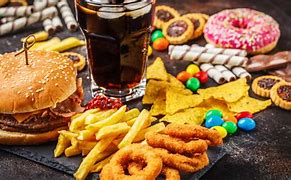
Hormonal balance is crucial as it coordinates various body functions by carrying messages through your bloodstream to your muscles, organs, and other tissues, letting your body know what to do. An imbalance in testosterone levels can lead to health issues such as reduced muscle mass, fatigue, erectile dysfunction, osteoporosis, decreased libido, mood swings, and decreased bone density.
Testosterone is the hormone responsible for promoting male sexual characteristics such as increased muscles and bone mass. In addition to its role in sexual development, testosterone also influences physical development such as the growth of facial and body hair as well as the deepening of voice. Testosterone levels can fluctuate throughout a man’s life often due to aging. However, various factors including lifestyle choices can significantly affect testosterone levels. Today, we will discuss some of the lifestyle choices that negatively affect your testosterone levels
Poor Nutrition
Certain nutrients such as Zinc, Vitamin D, and Magnesium have been found to be crucial for testosterone synthesis. Foods rich in zinc, such as oysters, red meat, and legumes, are essential for maintaining healthy testosterone levels. Vitamin D plays a role in testosterone production. A deficiency in vitamin D has been linked to lower testosterone levels. Sources include fatty fish, fortified foods, and sunlight exposure. Low magnesium intake is associated with reduced testosterone levels. Foods high in magnesium include leafy greens, nuts, seeds, and whole grains.
Some studies have found that high consumption of ultra-processed foods and low in nutrient-dense options can lead to weight gain and metabolic disorders, both of which are linked to lower testosterone levels. A pro-inflammatory diet, characterized by highly refined carbohydrates and saturated fats, has been shown to correlate with lower testosterone levels. In a nutshell, to maintain healthy testosterone levels, be mindful of these foods:
- Soy-Based Products
- Processed Foods: Trans fats, sugars and artificial additives
- Mint: Certain studies suggest that mint, particularly peppermint and spearmint, may lower testosterone levels. While more research is needed, moderation in consumption is recommended for those concerned about hormone levels.
- Bread and Refined Carbohydrates: Consuming too much bread and refined carbohydrates can lead to weight gain, which is correlated with lower testosterone levels.

Alcohol and Smoking
While moderate alcohol intake may not cause significant changes, excessive drinking can lead to a decrease in testosterone production. Testosterone levels can drop as quickly as 30 minutes after consuming alcohol, particularly with higher amounts. Alcohol consumption can interfere with the functions of the testes, pituitary, and hypothalamus. Alcohol can damage the liver, which is responsible for producing testosterone. Liver dysfunction can interfere with testosterone production. In men, chronic alcohol consumption is linked to decreased semen quality, lower sperm counts, and impaired fertility.
The relationship between smoking and testosterone levels is complex and somewhat contradictory, with various studies yielding different results. Some studies indicate that men who smoke may have higher total and free testosterone levels compared to non-smokers. For instance, research has shown that smokers had approximately 15% higher total testosterone and 13% higher free testosterone levels than non-smokers.
Despite some studies suggesting elevated testosterone levels in smokers, others have found no significant difference or even lower testosterone levels associated with smoking. The toxic components of cigarettes, such as cadmium, may interfere with the function of Leydig cells in the testes. Quitting smoking has been shown to improve testosterone levels in men who previously smoked. This suggests that cessation not only benefits overall health but may also help restore hormonal balance.

Physical Activity
Resistance training, such as weightlifting, is one of the most effective forms of physical activity for boosting testosterone levels. Studies indicate that engaging in resistance training can lead to significant increases in testosterone during and after workouts. For instance, a study found that a 30-minute weightlifting session resulted in a testosterone increase of approximately 21.6% in men. This type of exercise places stress on the muscles, prompting the body to respond by increasing testosterone to support muscle repair and growth. The anabolic effects of testosterone are vital for enhancing muscle mass and strength.
The intensity and duration of the workout significantly influence testosterone responses. High-intensity workouts tend to produce more substantial increases in testosterone compared to lower intensity or prolonged endurance exercises.

Remember, being in higher weight body is strongly associated with lower testosterone levels. Weight loss can lead to significant increases in testosterone, particularly in those with higher body fat percentages. Also, Quality sleep is essential for testosterone production. Studies have shown that sleep deprivation can lead to significant reductions in testosterone levels. Aim for 7-9 hours of quality sleep per night to support hormonal balance.
Maintaining healthy testosterone levels is crucial for overall well-being, affecting everything from muscle mass to mood. Start incorporating these lifestyle changes today and feel the difference in your energy levels and overall well-being. You can naturally boost your testosterone levels and improve your health. As usual, do not forget to share your progress.





Thank you for this insight 👍🏻
Very educative and I think selenium can also boost the testosterone level especially eating cowpea beans